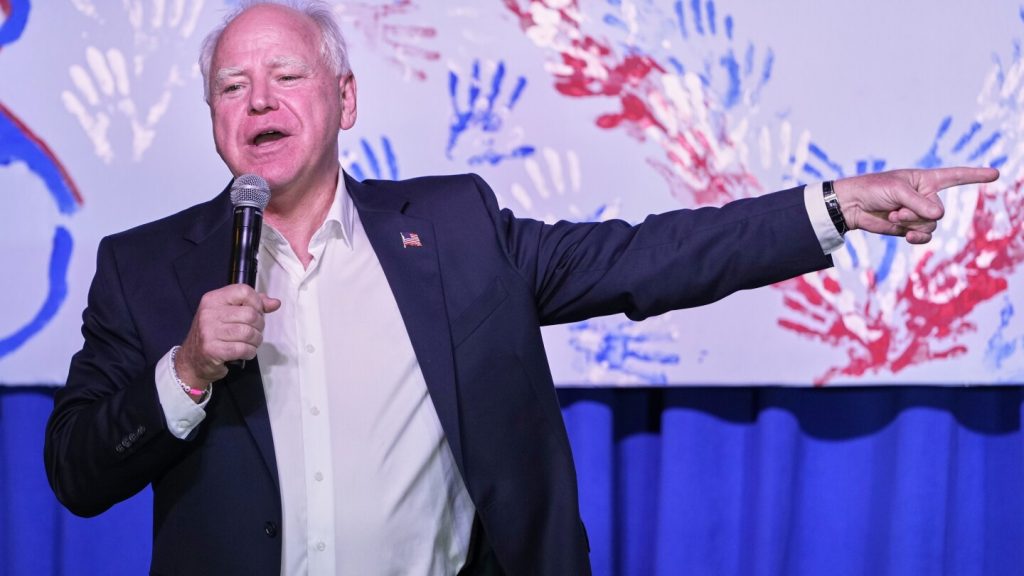Multiple news reports indicate that Democratic vice presidential nominee Minnesota Gov. Tim Walz made misleading claims about his whereabouts during the 1989 Tiananmen Square massacre. Walz claimed he was in Hong Kong at the time, but publicly available evidence suggests otherwise. This revelation has raised questions about Walz’s credibility and accuracy in his statements. At the vice presidential debate, Walz admitted to misleading people and claimed he “misspoke,” but also stated that he can get caught up in rhetoric at times. Republicans are hoping to use these inaccuracies to their advantage in the upcoming election.
Reports have also surfaced about other instances where Walz has misrepresented information, including the type of infertility treatment his family received, conflicting accounts of his 1995 arrest for drunk driving, and misleading information about his rank in the National Guard. Walz and his campaign have provided different versions of the events surrounding his arrest for drunken driving, further calling into question his credibility. Additionally, Walz has claimed to have traveled to China over 30 times, but his campaign later clarified that the actual number was closer to 15, raising concerns about the accuracy of his statements.
During the 2014 hearing on Tiananmen Square, Walz testified about his experiences in Hong Kong in May 1989, stating that he was planning to teach high school in Guangdong province and was in Hong Kong as the events unfolded. However, evidence suggests that Walz, then a 25-year-old teacher, was still in Nebraska at the time. He later traveled to China through WorldTeach, a nonprofit based at Harvard University, contradicting his initial claims about being in Hong Kong during the Tiananmen Square massacre. This inconsistency has further fueled skepticism about Walz’s credibility.
Some Republicans have criticized Walz for his apparent interest in China, pointing to his teaching experiences there, as well as his multiple visits to the country, including his honeymoon. Despite these criticisms, experts suggest that attacking opponents for their connections to China has become a common tactic in political campaigns. With the 2024 election approaching, the controversy surrounding Walz’s misleading statements about his presence during the Tiananmen Square massacre may have implications for his vice presidential candidacy and the broader political landscape.
As the debate over Walz’s credibility continues, the Republican Party is likely to use these inaccuracies as a focal point in their campaign against the Democratic ticket. The discrepancies in Walz’s statements about his whereabouts during the Tiananmen Square massacre and other events raise questions about his honesty and trustworthiness. As the election season progresses, voters will have to consider the implications of these revelations on their decision-making process and the broader political discourse. Ultimately, the controversy surrounding Walz’s statements and actions may have lasting effects on the outcome of the 2024 election and the future of American politics.


